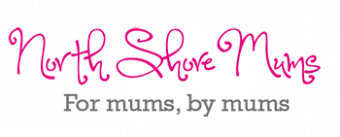With ADHD Awareness month in October, there has never been a better time to shine a light on diagnosis, treatment and living with ADHD, both as a child and an adult. North Shore Mum Kristen shares her journey discovering her awesomely (and often very frustratingly) different brain and sheds some light on where you can look for support.
When I was in Year 5, my favourite primary school teacher, Mrs. Baker, told my mom that “Kristen is a joy to have in class.” She praised my creativity, my humour, my positivity, the way I got along with other kids in the class and my work ethic. Lots of things to celebrate…
Then she went over and lifted the top to my desk. It wasn’t dirty per se, but it was a disorganised mess. The most dramatic example in the class.
Living with ADHD
The awesome part about having my brain is that I get to be really creative and see things that other people miss. I have really intriguing conversations with myself and am never bored. I get to think up big, cool ideas and think outside the box. I get energised by problem solving. I get to delve deeply into my passions, which I’ve always pursued with gusto.
At the same time, I struggle to pack a suitcase without throwing everything I own into the bag. I can’t make sense out of clutter no matter how big or how small – whether it be a closet, a playroom or a kitchen cabinet. I forget to unpack bags…for days or weeks at a time. If I am not interested in something, I start with good intentions – and then 10 minutes later go and listen to music, walk outside, check my email, do a random search on Google – repeat cycle.

Paperwork has always been my enemy
Paperwork has always been my enemy. “Please send it to me electronically” is one of my most common refrains. I struggle with spreadsheets. I lose bills, receipts, keys and permission slips more often than I can locate them. At any given time, I have a big collection of single shoes.
When I was a kid, my mum used to check in on me in those 10-minute intervals to see if I was cleaning my room or carrying out other very basic chores. I’d start with zeal, and then within minutes, I’d be making a new mixed tape. I’d forget what I had started, or I’d clear everything out and leave it on the floor and head to something else.
When my mother visits us, she still has to say to me, “Let’s spend 30 minutes cleaning out the storage room, and then you can take a break.” Just like when I was a kid.
My wonderful strengths have allowed me to do well at school and in the workplace. I have beautiful friendships that span every chapter of my life. I have a very good life.
But a person can be “successful” in some areas and still struggle massively in others.
Finding strategies to cope with ADHD

Only the people who have lived with me or see me all the time know how much time and energy I spend chasing down things that I should have organised in the first place and how many hours I’ve dedicated to retracing steps.
Only the people who have lived with me or see me all the time – my immediate family, past roommates, super close friends and certainly my husband – know how much time and energy I spend chasing down things that I should have organised in the first place and how many hours I’ve dedicated to retracing steps. It has been a constant battle my entire life and the source of a lot of frustration that has stood in the way of things I need and want to do.
I cannot understate how much this has impacted my life in a negative way.
Over several decades, I developed some very effective workaround strategies to get routine things done. For instance, because I’ve always been a people pleaser, I tend to commit to things in writing or out loud, “I will send you that by Monday” because the motivation to deliver on my commitment is so strong that it outweighs any natural tendency to procrastinate. Guilt forces action. I can’t “do” paper files, but I hold on to emails and have an amazing ability to remember exchanges. And I’ve always had supportive people around me.
I did not marry my husband for his immense organisational skills, but his strength in that arena does make my life a lot easier. For starters, we aren’t late with paying bills because the bill got misplaced, something that was a constant struggle for me when I was younger and living on my own. We have warranties and records of passwords, things I could never manage to keep track of. He doesn’t leave the stove on or leave the bathtub on until it overflows.
As I’ve gotten older, and my high energy levels have dropped, I’ve found it more and more frustrating to deal with my weaknesses and harder to compensate. Staying up until 2am retracing steps for something for work is no longer a feasible option as it was when I was younger.
At the same time, through the Autistic-led and other neurodivergent-led spaces I frequent, I’ve seen the immense value that comes from having answers about one’s self. I also feel very comfortable in those spaces, rather than a “neurotypical parent visitor”.
Diagnosed later in life

It was really comforting and validating to be able to share my life story
After years & years of saying, “I REALLY need to do this” – and misplacing multiple referral forms – I sought an ADHD assessment with a Sydney psychiatrist who sees a lot of neurodivergent women. My GP referred me.
It was really comforting and validating to be able to share my life story with her and have a respected professional acknowledge my differences. Waiting times for specialists and costs (despite the Medicare rebate) mean that a lot of adults go without timely answers and support.
I easily met the criteria for ADHD-inattentive type – or what used to be known as ADD. Also known as “Off with the fairies”. It feels really good to have that official answer and to be able to get carefully prescribed/monitored medication that helps mitigate some of my intense struggles. I am also enjoying being an official part of some support groups for neurodivergent people.
My point in this long missive is to (1) celebrate my brain’s awesomeness because it continues to lead me to really interesting thoughts, people and opportunities while (2) reminding people about the seriousness of ADHD and the harm that bad information can cause.
Find the facts about ADHD
There is a lot of misinformation and fear mongering about ADHD out there – which is why it’s so important to get information from credible sources. As a big part of that, it is really important to also learn about ADHD from people with the lived experience.
Here’s some key facts to take in:
- A lot of the fear mongering is directed toward medication. Although medication might not be the right choice for everyone, thoughtfully prescribed, carefully monitored medication (important to have both) can be a game changer for many.
- ADHD, like Autism, runs in families. My psychiatrist indicated that many of her adult patients seeking assessments are parents of kids who have already been diagnosed. As we head to various appointments with our kids and fill out surveys, we start to think, “Hmmm…that sounds a lot like me as a kid”. That has certainly been the case here. It is not uncommon for women with ADHD to fly under the radar, as I did, for so many years.
- Untreated or under-treated ADHD can cause very, very real and very significant issues. I am lucky that my challenges have been relatively confined to internal stress and the fatigue that comes from having to work so hard to keep up, but others aren’t as fortunate. It is so important that we get identified and supported so we can be our best selves. We have so much to offer. How I wish I had been diagnosed 40+ years earlier.
- Parents, if you suspect your child might be an ADHDer and have the opportunity to investigate, don’t delay. From being able to access formal accommodations to having that self-knowledge, the benefits of a diagnosis are immense. This group can be a wonderful place to get recommendations of specialists who conduct thorough, respectful assessments, e.g. outstanding developmental paediatricians, child psychiatrists and psychologists with relevant backgrounds.
ADHD Resources
A few of my favourite resources are below.
- Understood: An excellent site for “learning and thinking differences”
- How to ADHD
- Jess McCabe’s videos (she’s an adult ADHDer) are fabulous and informative. Her TEDx talk, “Failing At Normal: An ADHD Success Story” is particularly brilliant.
- CHADD – Children & Adults with ADHD
- Parents for ADHD Advocacy Australia












